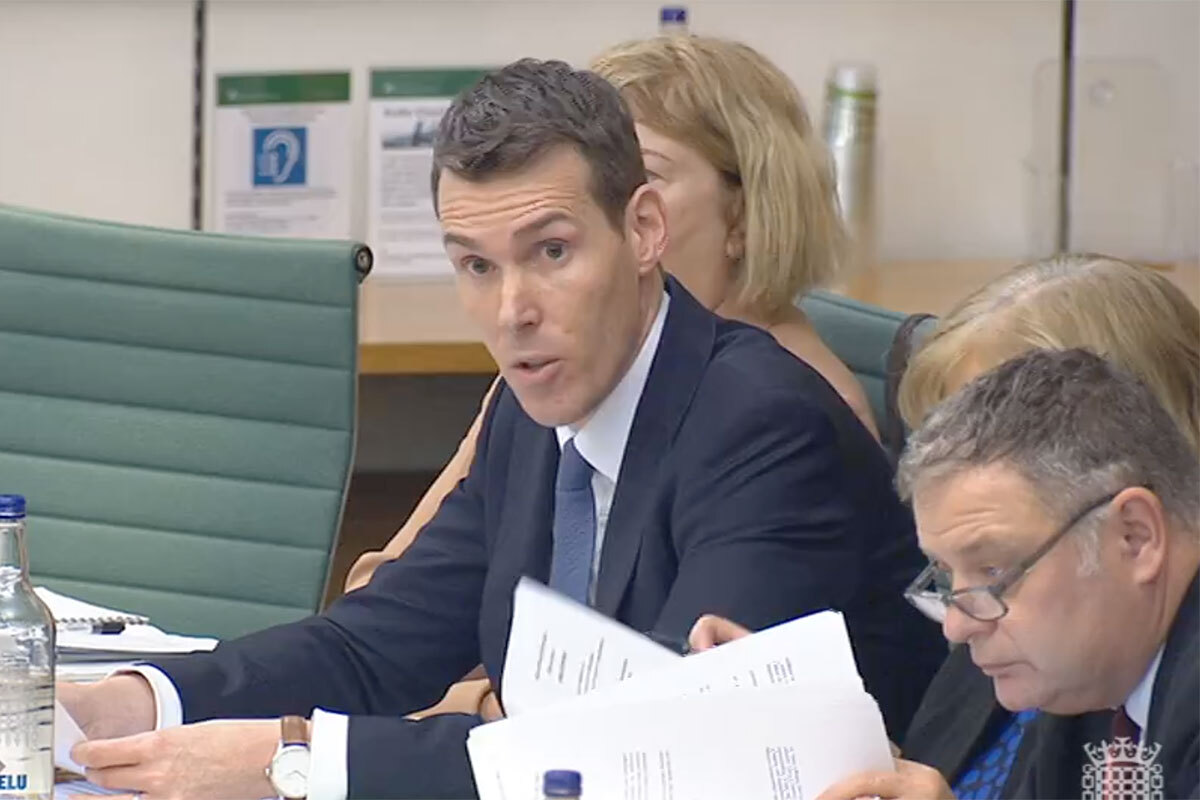Renters (Reform) Bill: where are we up to?
It is now approaching a year since the already long-delayed Renters (Reform) Bill was presented to parliament. James Wilmore takes a look at the state of play
As yet there is no sign of the Renters (Reform) Bill getting rubber-stamped, and it still has to get through the House of Lords. Even before that, the controversial legislation has endured a slow journey.
It was back in the Conservatives’ 2019 election manifesto that renters were promised a “better deal”, with the most eye-catching change being the abolition of Section 21, known as no-fault evictions.
Campaigners have held the government’s feet to the fire on this commitment and it has been included in the bill.
The legislation will “improve the system for both the 11 million private renters and 2.3 million landlords in England”, according to the government.
However, a series of amendments that emerged in a leaked letter from levelling-up minister Jacob Young last month are causing concern for campaigners.
It has added fuel to the fire for a shake-up that has become a battle between campaigners for tenants’ rights, landlord groups and the government.
Inside Housing takes a look at the current state of the Renters (Reform) Bill.
What did Jacob Young’s letter say and what are the key amendments?
In his letter, Mr Young said the legislation must “strike the right balance between delivering security for tenants and fairness for landlords”.
He added: “Tenant and landlord groups have a common desire to see us deliver this bill as quickly as possible to end uncertainty for the sector.”
Mr Young, who is a junior minister in the Department for Levelling up, Housing and Communities (DLUHC), promised the bill would return to the Commons after the Easter recess.
Parliament is back, so all eyes are on the next steps.
On Section 21, much of the focus has been on the ability of the courts to handle any fall-out from it being abolished.
As a result, one amendment will require the Lord Chancellor to publish an assessment on the “readiness of the courts” in advance of scrapping the law.
Housing secretary Michael Gove told the BBC in February that the government would “put the money into the courts” to ensure the law can be enforced. He also promised that a ban on no-fault evictions would be in place by the time of the general election.
In other changes, an amendment will be introduced to stop tenants ending a tenancy in the first six months, Mr Young’s letter said.
At the moment, the bill means a tenant could end a tenancy at any point with two months’ notice. “A minimum six-month period will ensure landlords can rely on a letting period that covers costs of finding tenants and making repairs between tenancies, and prevents tenants using rented properties as short-term lets,” the letter said.
Mr Young addressed the issue of why fixed-term contracts will be abolished under the new system. In the future, all tenancies will be periodic, the letter said. “This position reflects that, once Section 21 is abolished, fixed terms will have little benefit,” it said.
“In the new system, both landlords and tenants will continue to be able to communicate about whether either party wishes to end the tenancy.”
The government has also committed to a review of selective licensing schemes for councils and licensing of houses in multiple occupation (HMOs). Landlords are seeking “reassurance” that it will not duplicate a new property portal system.
In addition, tenants who are evicted under new possession grounds will be given a right to homelessness support from their local council.
Much has also been made of the fact that a number of the Conservative MPs pushing for changes are private landlords. Of the 47 Tory backbenchers who had signed previous amendments, 14 were landlords, according to research by the Renters’ Reform Coalition, the campaign group.
In his letter, Mr Young noted that some of his colleagues had “raised concerns about the overall attractiveness of the private rented sector” to landlords and investors. In recognition of this, he promised that the DLUHC will publish an annual update on the state of the private rented sector.
What have campaigners said?
On the whole, there is wariness about the changes and what they indicate more broadly.
Jenny Lamb, a policy officer at Shelter, tells Inside Housing: “What we’re concerned about is the general direction of travel with the Renters (Reform) Bill.
“We’ve got a government who are willing to concede to landlords and not listen to renters.”
On Section 21, she is not convinced around the argument about the extra work for courts. “We don’t believe it’s going to mean a huge amount of additional work in the courts. There isn’t any evidence that the scrapping of Section 21 will mean a deluge of evictions. Court timetables are already back to pre-pandemic levels, and they are on a downward trend as well.”
The stance on fixed-term contracts is also a worry. “One of the central tenets of the bill was to scrap all fixed-term contracts, but the government’s latest change will require tenants to stay for a minimum of six months, which is just a de facto fixed term for every tenancy.”
On selective licensing, she added: “Landlords have had a long-standing issue with selective licensing, and the government is basically just showing them it’s listening, when tenants’ concerns haven’t had such attention.”
Sadiq Khan, the mayor of London, also weighed in following news of the government’s amendments. “Renters will rightly be furious,” he wrote in a post on X. “It’s now Tory landlord MPs who are writing government housing policy.”
Kwajo Tweneboa, the social housing campaigner, said he believed that “real renters’ reform” should now be left for the Labour Party to deliver. “This half baked Reform Bill isn’t cutting it considering the scale of the crisis renters are currently facing,” he wrote on X.
Tom Darling, campaign manager at the Renters’ Reform Coalition, said the government’s “flagship legislation to help renters is fast becoming a landlord’s charter”.
“Renters will be hoping to see significant changes to the bill in the House of Lords; otherwise this legislation will hardly be an improvement on the status quo, and in some case it will make things worse,” he wrote on X.
Shelter has today stepped up its lobbying efforts with new research suggesting that "unwanted moves" are costing private renters £550m a year due to unrecoverable costs from forced moves.
What is the view of the National Housing Federation (NHF)?
Alistair Smyth, the NHF’s director of policy and research, said: “Private renters deserve greater security, and we would welcome proposed changes to the law that would provide this.
“No-fault evictions cause untold upheaval and stress for those renting privately, forcing them to uproot their lives and, for those on low incomes, often putting them at risk of homelessness. We would be deeply concerned about any watering down of proposals that would allow this unfair, damaging practice to continue.”
What do the major opposition parties think of the amendments?
Matthew Pennycook, the shadow housing minister, said: “After years of delay, private renters have every right to be furious at the watering down of the vital protections the Tories promised them.”
Liberal Democrat housing spokesperson Helen Morgan said: “This watered-down plan means the vast majority of renters still face being evicted from their homes through no fault of their own.”
Private landlords welcomed the changes
The National Residential Landlords Association (NRLA) has welcomed the government’s amendments. On its website, it said it campaigned for “many” of the changes and now believes the bill will “work for landlords”.
Ben Beadle, chief executive of the NRLA, said: “Ministers now need to crack on to ensure the bill can proceed with the scrutiny it deserves.
“The lack of progress and uncertainty about the future are destabilising and damaging for those living and working in the private rented sector. It is time to bring this to an end.”
The government insists its plans will go ahead
In direct response to Shelter’s comments to Inside Housing, a spokesperson for the DLUHC said: “We reject these claims. We are still committed to delivering our landmark Renters (Reform) Bill that will provide a fairer private rented sector for both tenants and landlords.
“The bill must strike the balance between delivering security for tenants and fairness for landlords, which is why it still abolishes fixed-term contracts, and where tenants do leave unexpectedly, tenants must give six months’ notice.
“This ensures that landlords have a sufficient guarantee of rent and enough notice to find new tenants to avoid lengthy void periods.”
The government told Inside Housing last month that it had “no plans” to abolish selective licensing. It is understood this is still its position.
Sign up for our regulation and legal newsletter
Already have an account? Click here to manage your newsletters












